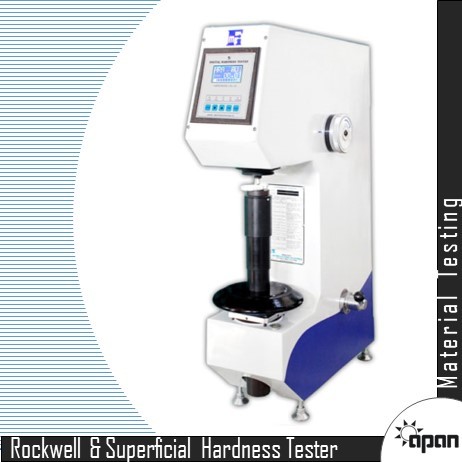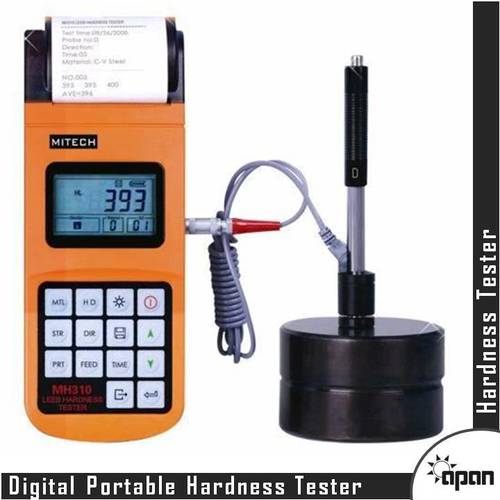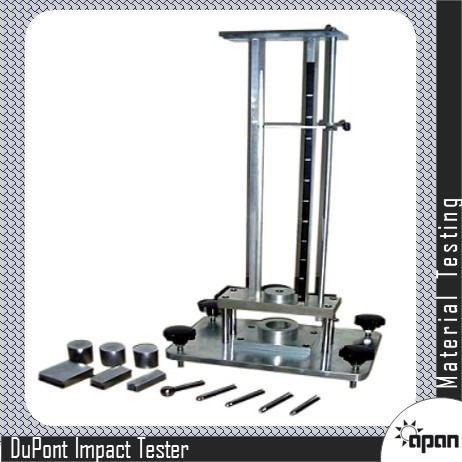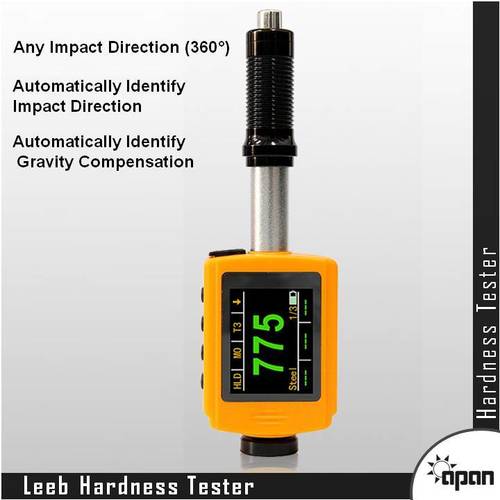Linear Abrasion Tester
Linear Abrasion Tester Specification
- Temperature
- Room temperature (5C ~ 35C)
- Humidity
- 20% - 80% RH
- Specimen Size
- Maximum 100 mm 100 mm
- Equipment Type
- Linear Abrasion Tester
- Number of Specimens
- 1 at a time (single station design)
- Test Range
- Abrasion resistance of coatings and materials
- Application
- Assessment of abrasion resistance for coated, painted, and printed surfaces
- Automation Grade
- Semi-automatic
- Resolution
- 1 cycle
- Gas Pressure
- 0.2 - 0.4 MPa
- Port Size
- 6 mm air input
- Measuring Range
- 0-999,999 cycles
- Display Type
- Digital display (LCD)
- Operating Voltage
- AC 220V 50Hz
- Power Supply
- AC 220V 50Hz
- Features
- Adjustable test speed, programmable cycles, easy specimen mounting, easy-to-clean design
- Response Time
- Real-time monitoring
- Mounting Type
- Bench-top
- Accuracy
- 1 cycle
- Interface Type
- Keypad and digital interface
- Frequency
- 50 Hz
- Usage
- Laboratory, quality control
- Capacity
- Test load up to 1000 g
- Machine Weight
- Approx. 40 kg
- Test Speed
- 0~60 cycles/min, adjustable
- Test Width
- 10 mm - 50 mm
- Test Stroke
- 60 mm (standard), adjustable
- Control Mode
- Digital programmable control
- Accessory Kit
- Includes sample clamp, weights, abrasive media
- Finish
- Powder-coated steel housing
- Safety Mechanism
- Emergency stop button
- Serviceability
- User-friendly calibration and maintenance design
- Ambient Working Conditions
- Non-condensing atmosphere, vibration-free surface
- Test Arm Type
- Linear reciprocating arm
- Noise Level
- <60 dB(A)
- Abrasive Type
- Compliant to supplied specification (felt, nylon brush, etc.)
- Cycle Counting Method
- Automatic digital counter
- Installation
- Simple bench-top installation
Linear Abrasion Tester Trade Information
- Main Export Market(s)
- Asia
About Linear Abrasion Tester
As an Authorized dealer we are engaged in providing the broad assortment of Material Testing Instruments for wide range of application.
Linear Abrasion Tester is a universal machine that can practically perform many kind of linear abrasion rub testing by attaching the required accessories and weightsDry or Wet.The Wet Rub Test requires a liquid dispenser with dripping control knob.
The Linear Rubbing is engineered to perform many International Standard Tests, such as Crocking Test, Eraser Test, Liquid/Solvent Rub Test, glass, glasses lens, acrylic board, mobile phone touch screen, film coating, paint silk screen, etc. Which make it a multifunctional rubbing machine.
This machine is suitable for all kinds of surface coating products and print wear-resisting life test. Speed adjustable and visual, tests times can be set at the same time; The test results are accurate, easy to operate.
Three kinds of wear test function:
- steel wire friction test
- alcoholresistance test
- rubber friction test
Various Options are available as per applications.
a) Linear Abrasion Tester
b) Linear Rubbing
c) Linear Rubbing with big working table and all made of stainless steel.
Specification :
- The maximum stroke: 0-50mm adjustable.
- Speed: 1-60 / min (round trip) adjustable
- Friction Hammer: rubber,
- different fixture, the other with random weights
- Counter: maximum count of 9999 times
- Total power: 30W.
- Power supply: AC220V 50/60Hz.
- Dimensions: 550*400*330mm (length * width * height)
Standard accessories:
- Test lifts lever, 60 g 1, 2pcs
- Alcohol friction head, 2pcs
- Weight, 500g0.5, 2pcs
- Weight, 250g0.5, 2pcs
- Weight, 100g0.5, 4pcs
- Weight, 50g0.5, 2pcs
- Eraser ,7017R, 2pcs
- Open End Wrench, 1 piece
- Allen wrench, 1 set
- Brush, 1 piece
Advanced Abrasion Testing Made Simple
The Linear Abrasion Tester brings efficiency and accuracy to abrasion resistance evaluations. Offering programmable digital controls and a programmable cycle range, it meets the demanding standards of laboratory and quality control testing. The noise level remains below 60 dB(A) for a quieter work environment, while a robust powder-coated housing ensures lasting performance even with repeated use.
Versatile Applications for Quality Control
Ideal for coated, painted, and printed materials, this device handles single specimens up to 100 mm 100 mm. The accessory kit, adjustable speed, and easy-to-clean design support a wide variety of testing protocols, making it a vital tool for factories, labs, and QC departments engaged in rigorous materials analysis.
Safe, User-friendly Operation
Featuring an emergency stop button, simple keypad interface, and a stable bench-top footprint, the tester allows operators to conduct abrasion tests efficiently and safely. With its self-explanatory mounting system and digital display, both new and experienced users will find it exceptionally straightforward to operate and maintain.
FAQs of Linear Abrasion Tester:
Q: How do I install and set up the Linear Abrasion Tester?
A: The tester is designed for simple bench-top installation. Place it on a vibration-free surface in a non-condensing room, connect to an AC 220V 50Hz power supply, ensure gas input (6 mm port, 0.2 0.4 MPa), and follow the quick-start guide. The accessory kit includes all necessary clamps and abrasive media.Q: What types of surfaces can I test using this abrasion tester?
A: This equipment is tailored to evaluate abrasion resistance on coated, painted, and printed surfaces. It is especially relevant for laboratories and quality control environments assessing material durability across various industries.Q: When should I use the emergency stop button?
A: The emergency stop button should be pressed immediately if any unsafe condition arises or if you need to halt the test suddenly for safety reasons. This feature ensures maximal personnel and sample safety during operation.Q: Where can this device be effectively utilized?
A: The Linear Abrasion Tester is suitable for use in laboratories, quality control departments, and R&D facilities. Its bench-top design allows placement on any stable, vibration-free work surface within the specified temperature and humidity range.Q: What is the process for adjusting the test parameters?
A: Test parameters such as speed (060 cycles/min), stroke (standard 60 mm, adjustable), and test load (up to 1000 g) can be set using the digital keypad interface. The LCD display offers real-time cycle counts and status updates.Q: How does the cycle counting system ensure measurement accuracy?
A: The device employs an automatic digital counter with 1 cycle accuracy and a 1-cycle resolution. This system enables precise, reliable measurements and tracks up to 999,999 cycles per specimen test.Q: What are the key benefits of using this Linear Abrasion Tester?
A: Key benefits include high measurement precision, programmable testing routines, user-friendly operation, and versatile sample compatibility. The included accessory kit and safety mechanisms further streamline the testing process and safeguard users.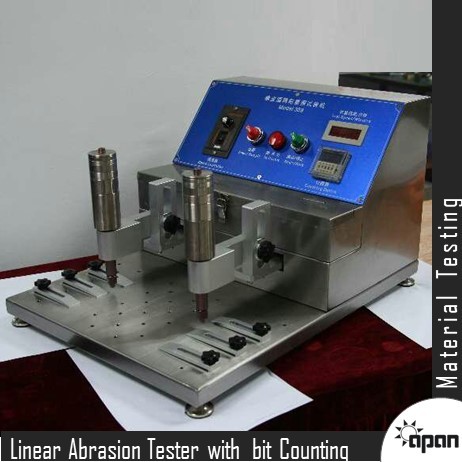
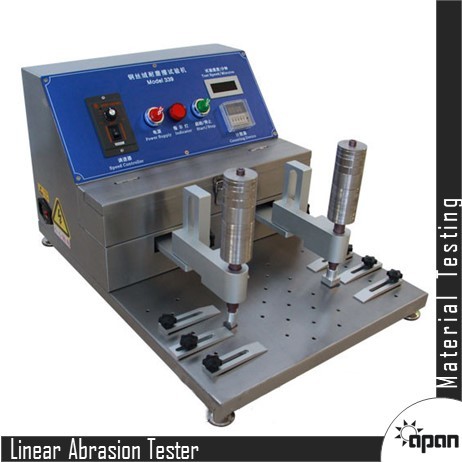
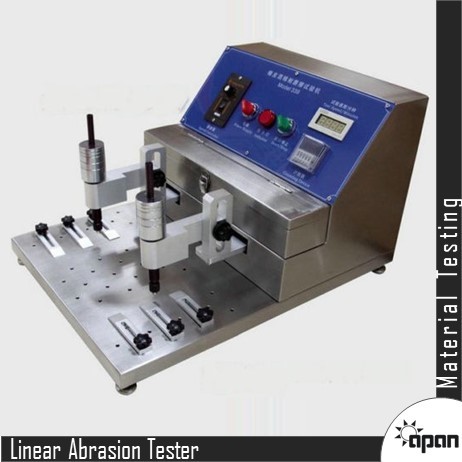
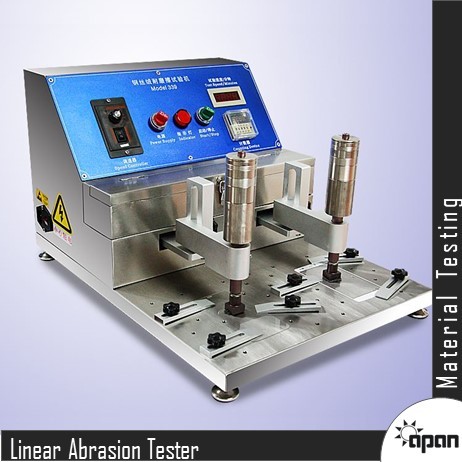
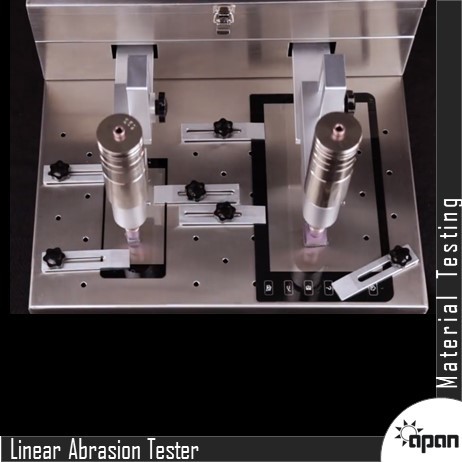
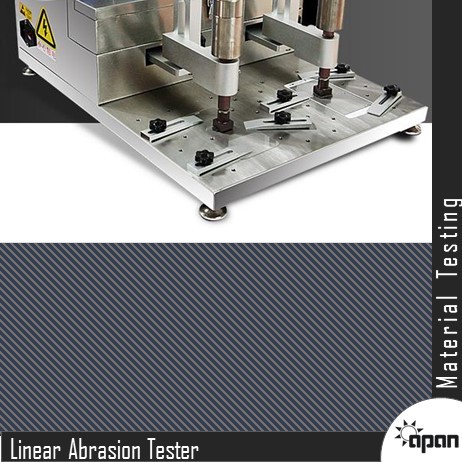
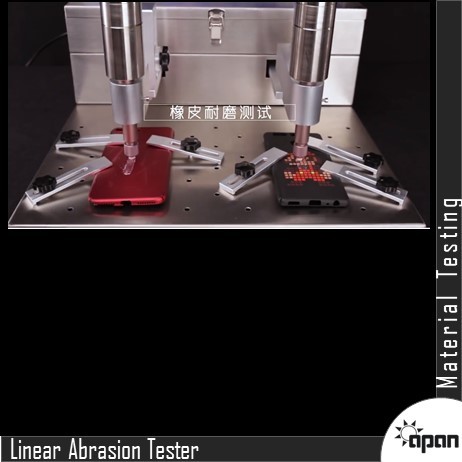
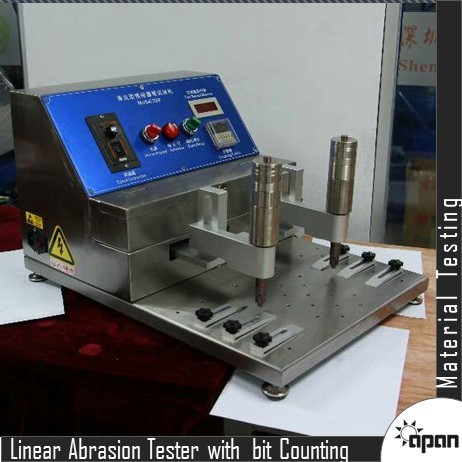
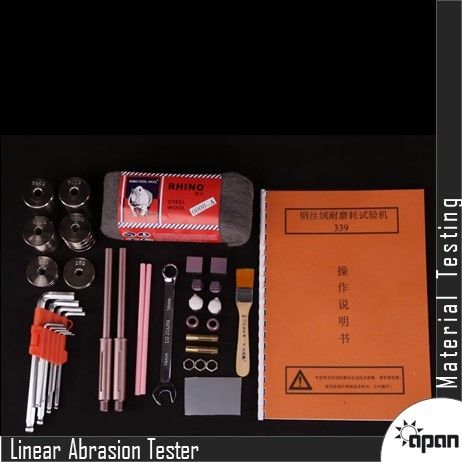

Price:
- 50
- 100
- 200
- 250
- 500
- 1000+
More Products in Material Testing Category
Digital Rockwell & Superficial Hardness Tester
Usage : Hardness Testing of Metals
Application : Metallurgy, Quality Control, Laboratory
Display Type : Digital LCD
Test Stroke : Vertical, 150 mm
Capacity : Large Table for Various Specimens
Measuring Range : HRB, HRC, HR15N, HR15T, HR30T, HR45T, HR15W, HR30W, HR45W
Digital Portable Hardness Tester with Printer
Usage : Onsite hardness testing, industrial
Application : Metal hardness measurement (steel, cast steel, alloy, copper, etc.)
Display Type : LCD Digital with Backlight
Test Stroke : Adjustable, up to 50 mm
Capacity : 1000 test records
Measuring Range : 170960 HL (Leeb); equivalent to HRC, HRB, HB, HV, HS
Impact Tester
Usage : Industrial
Application : Material Impact Strength Testing
Display Type : Analog / Digital
Test Stroke : 350 mm
Capacity : Specimendependent
Measuring Range : 0300 J
Leeb Hardness Tester
Usage : Nondestructive hardness testing of metals
Application : Testing the hardness of steel, cast steel, alloy tool steel, stainless steel, gray cast iron, nodular cast iron, cast aluminium, brass, bronze, copper, and other materials
Display Type : LCD digital display
Test Stroke : Variable by attachment, standard 11 mm
Capacity : Supports up to 500 groups (average of 32 readings per group)
Measuring Range : 170960 HL (Leeb) / Converts to HRC, HB, HV, HS, and others

 Send Inquiry
Send Inquiry Send Inquiry
Send Inquiry
